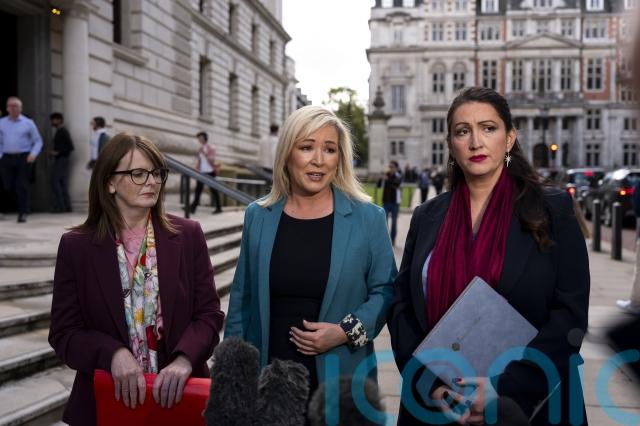
The Executive is on course to generate its target of £113 million in added revenues in two years without the need for any new cash raising measures, a budgetary plan has confirmed.
The target set by the Treasury was a precondition of a £3 billion-plus financial package offered by the UK Government to accompany the return of devolution in February.
Finance Minister Caoimhe Archibald published a Budget Sustainability Plan on Thursday that set out details on how the £113 million could be delivered by the end of 25/26 financial year.
The Executive already generates more than £1 billion a year of its own revenues. The Treasury asked local ministers to increase that amount by £113 million. It originally gave them one year to achieve that goal but later agreed to extend that to two years.
The Treasury financial package included the write-off of a £559 million debt owed by the Executive. However, ministers in London made clear that failure to raise the £113 million in extra revenue would have seen that £559 million bill reactivated.
The sustainability plan, the publication of which was another condition of the Treasury package, shows Stormont departments will collectively generate £80 million in extra revenue in the current financial year, leaving them requiring to find an added £33 million in the following 12 months.
The £80 million has been achieved without any new revenue raising measures or any dramatic hikes in existing charges or local taxes.
More than half the total (£43 million) was raised with the 4% increase in the regional rate element of householders’ rates bills in 24/25.
If the regional rate was to rise by 4% in 2025/26 then a further £47 million in additional revenue would be collected by the Stormont Executive.

The remainder of the £80 million in 24/25 was achieved by relatively modest increases of other revenue raising measures, such as Translink travel fares, hospital car parking charges, client contributions to nursing and residential care, water charges on non-domestic customers and court fees.
The sustainability plan does not specify how additional revenues should be achieved in 2025/25 but outlines what totals could be generated with further incremental increases in existing charges.
The plan includes five broad commitments made by the Executive, one of which is undertaking regular, strategic consideration of income generation measures.
The others are:
– The implementation of multi-year budgets where possible.
– The routine publication of supplementary financial tables for in-year monitoring rounds to promote transparency and accountability.
– Engagement with Treasury on flexible use of existing tools and longer-term solutions including those that will form part of any new fiscal framework.
– Agreement to a future workplan to help secure and maintain sustainable finances.
Commenting on the publication of the plan, Finance Minister Dr Archibald said: “The key to long term sustainability is a vibrant, successful and inclusive economy.
“It is not just about how we spend money, it is about having an economy that generates the resources needed to deliver the public services our citizens expect and deserve.
“With increasing demands on our public services, it is crucial that we use our limited resources in a sustainable manner. We need budgeting and financial management that looks at tomorrow as well as today.
“The publication of the Executive’s Budget Sustainability Plan will be the impetus required to drive further improvements in our fiscal system.
NEXT READ: Boutcher ‘can’t see’ how passing information on McMonagle would prejudice probe
“The plan sets out the Executive’s longer-term ambition to begin integrating important sustainability discussions into the heart of our processes and decision making while allowing the development of longer-term plans and improvements to the budgeting process.
“This work, however, must be underpinned by a new approach from the British government which sees proper investment in public services and infrastructure, the budget at the end of October is the opportunity to signal this intention.”
Subscribe or register today to discover more from DonegalLive.ie
Buy the e-paper of the Donegal Democrat, Donegal People's Press, Donegal Post and Inish Times here for instant access to Donegal's premier news titles.
Keep up with the latest news from Donegal with our daily newsletter featuring the most important stories of the day delivered to your inbox every evening at 5pm.